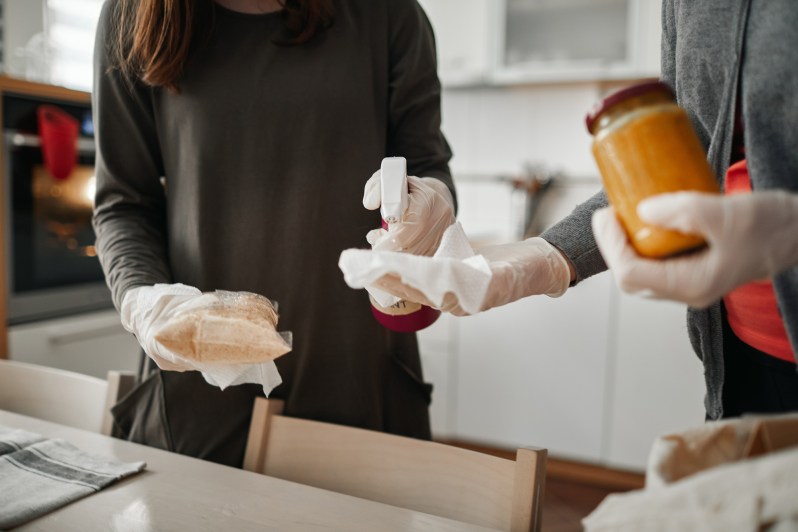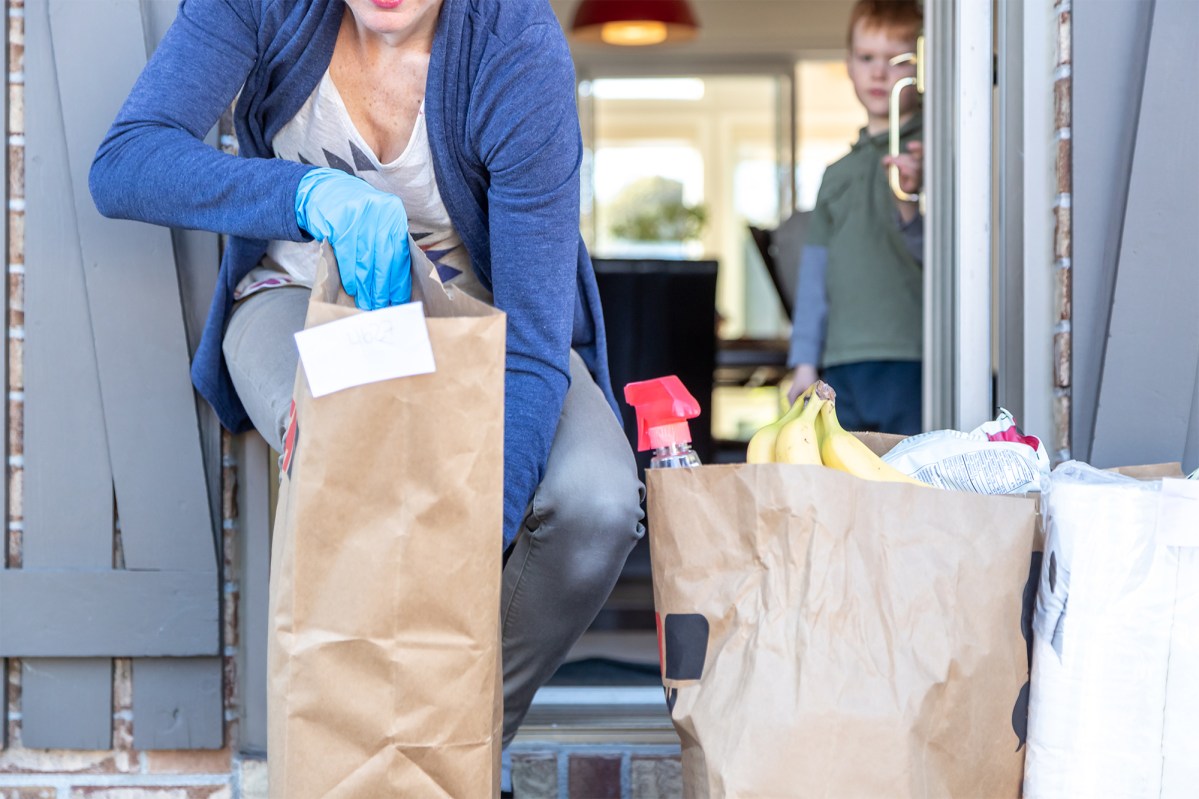There’s plenty of misinformation online, and so much of it now revolves around the ongoing coronavirus pandemic. It has led some to ignore the situation entirely, while others refuse to leave home without a military-grade biohazard bodysuit. With the right preparation, it’s possible to not step foot outside for weeks or even a full month. But deliveries are a necessity for most of us. More importantly, we need to eat, and that food has to come from somewhere. The question then becomes: Are your groceries contaminated, and is it necessary to clean or sterilize them before putting them away or bringing them inside at all?

Thankfully, the short answer is that it’s not as scary as you might think. According to the CDC, COVID-19 spreads “from person to person, mainly through respiratory droplets produced when an infected person coughs or sneezes.” The key here is person to person. It is technically possible for the virus to go from “person to delivery box to person.” But, the consensus among people in the know is that this is far less likely. The greatest risk is when droplets “land in the mouths or noses of people who are nearby or possibly inhaled into the lungs. Spread is more likely when people are in close contact with one another (within about 6 feet).”
Do I Need to Quarantine My Groceries Outside or in the Garage?
According to Donald Schaffner, an expert in microbiology and food safety at Rutgers University, “This is patently ridiculous.” While trace amounts of the virus may be detectable on bags and cartons after your trip to the grocery store, the likelihood that they will also infect you is minuscule. “There is a tiny nugget of truth in this advice because we know that the virus is slowly inactivated at room temperature, with a half-life of about eight hours. But this advice presumes that all groceries are contaminated, and that simply touching the groceries will make you sick, neither of which are true.” If you’re that concerned, there’s no real harm in leaving shelf-stable products in your garage or a separate room. But, it’s unnecessary, so why concern yourself with one more thing to worry about in an already stressful time?
Should I Clean My Groceries?

So, your groceries don’t need quarantining. But, should you clean them once inside? COVID-19 can live on surfaces like plastic bags and cardboard boxes, but it’s believed that the likelihood of transmission from just touching a contaminated surface is low. The CDC confirms, “It may be possible that a person can get COVID-19 by touching a surface or object, like a packaging container that has the virus on it and then touching their own mouth, nose, or possibly their eyes, but this is not thought to be the main way the virus spreads.” Just remember that possibility is not probability. “In general, because of poor survivability of these coronaviruses on surfaces, there is likely very low risk of spread from food products or packaging.”
What About Washing Fruits and Vegetables?
The CDC is clear about the limited danger of coronavirus on food. “Currently, there is no evidence to support the transmission of COVID-19 associated with food.” That means it’s safe to carry on washing your fruits and vegetables just as you usually would. Rinse them thoroughly under cold running water, then pat dry with a paper towel. Together, this is sufficient to remove any dirt or bacteria present. Layered vegetables like cabbage and lettuce should be pulled apart to ensure the inner leaves are thoroughly cleaned. Fruits like apples and lemons and root vegetables (potatoes, carrots, etc.) can be scrubbed clean with a firm vegetable brush. Any foods sold as “pre-washed” are ready to eat and needn’t be rewashed.
Even more importantly, every major reputable source, including the FDA and USDA, recommends against using detergents or even household soap to wash produce. Schaffner agrees: “Soap should *absolutely* not be used to wash food. Soap is not designed for food … [and] can cause nausea, vomiting, and diarrhea if ingested.” Don’t bother with vinegar either. It can leech into your food, ruining the taste. Plus, it’s not a recognized disinfectant against the coronavirus.
The best possible thing that we can all do to flatten the curve is to wash our hands thoroughly with soap and running water (hot or cold as the CDC confirms temperature is not important) for at least 20 seconds. This is especially true before every meal. It really is that simple.
Editors' Recommendations
- The 5 best vegetarian and vegan dishes to try right now
- The 12 healthiest fruits you can eat right now
- Why you can (and should) add bourbon right to your banana bread batter without cooking it first
- The Stanley Tumbler is hot right now, but the classic Stanley Bottle is much cooler
- 4 delicious casserole recipes to try right now (it’s the comfort food you need)


